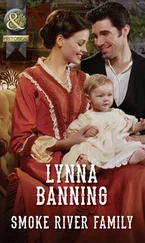“No, our problem is not Smoke, it’s what we have grown to believe it means. We need to remake our sense of good and evil; learn to apprehend Smoke anew. But how? We need a sign. From the land itself. From the very heavens! A storm; a cauterising fire. Sweeping away the high and mighty; curing us of our self-told lies. We dreamt of a world where people would argue and make love without fearing they are making God mad.
“Oh, it would have burnt out soon enough. A few weeks, a month or two at most. Enough for a new beginning. Tabula rasa. A second childhood for mankind. We grew up stunted the first time around.
“So again, Thomas: no monsters. We did not plan to release the black of cigarettes, that manufactured vice scraped off prison cells and the bodies of the mad. It’s a Puritan’s version of sin. My bottle, the pools here, they were to be mere ‘kindling,’ as Charlie put it so well: a spark that flares out the moment it has ignited the real flame. Out in the world, Soot lies weak, human, dormant. It lies in the water and the soil, in every brick that’s ever been baked. We wished to free it, quicken it; allow it to fill the air, communicate. Let men know one another. We wanted to fight the lie that we are filthy creatures; that all loss of control leads to murder, all passion to rape. Passion : flexible, complex, ever-changing passion, not dividing but uniting the land.
“For what after all is Smoke? Yearning. Courage. Anger. The type of fear that coils itself into a fist. Defiance. Triumph. Hope. It’s the animal part of us that will not serve. That won’t do the homework. That won’t take orders. I dreamt of a world where people will not serve.
“Tell me, Livia, tell me honestly. Was it not a beautiful dream?”
It takes Livia some moments to answer. Her face is very dark. It is as though she has caught her mother’s fever.
“You wanted to make a world where nobody turns the other cheek,” she says at last.
“Perhaps, my child. But who does it serve, all this cheek-turning of yours, who counts its profits? And after all, perhaps some would turn the cheek all the same. There is love in Smoke. And none in Discipline. I had hoped you would have discovered this by now.”
ф
Thomas listens, grim in his scepticism; Charlie thoughtfully, stirred despite himself. As for Livia, she is not content with the answer, seems suspicious of its very eloquence, the facility with which it leaves her mother’s lips. Again Grendel stoops to gather Lady Naylor in his arms, again Livia intervenes, stops him, watches him cringe before her angry gaze.
“I don’t believe you, Mother. I want to, you see, but it just doesn’t fit. You talk of change and a new Eden. But I know you too well. Deep down, you don’t give a fig about revolution, or power, and about the common people least of all. Then why, Mother, why? Just because Father went mad? You will remake the world because he took Discipline too far?”
Her mother winces, looks up, cold fury in her one good eye.
“You were too young to see it, Livia. How he changed. A happy, healthy man. Fond of his food.” She coughs, swallows. “He forbade the cook to put any salt in his food, lest it warmed his thoughts. He wouldn’t sleep, because the Smoke might come in his dreams. He even grew afraid to laugh. And he stopped coming to my bed.” She pauses, her tongue chasing for spit. “He cut me, Livia! Cut me open. Me, the woman he loved. And he did not smoke. Do you want to live in a world such as that?”
Livia looks at her mother with an expression that fuses disparate emotions.
Incredulity.
Terror.
Pride.
Her mother studies it calmly.
“I can see that you don’t understand,” she whispers. “You have never really been in love.”
ф
For a third time Grendel stoops to gather her; for a third time Livia interposes her body and pushes him out the way.
“Say it was noble,” she mutters. “Your revolution. Your dream. It does not justify it, Mother. The things you did to Mowgli. And to others. Sebastian told me about Lilith. It was wrong, Mother. Reprehensible.”
Her mother shivers, holds Livia’s gaze.
“I know, my dear. But I did it anyway.”
Livia nods, bends forward suddenly, as though afraid her courage will leave her, kisses her mother full on her mouth. Smoke comes pouring out of her, Smoke of grief, of love. And slowly, painfully, something in her mother answers, a Smoke strangely damaged and shy, like a widow long shut out from the ways of the living, daring a peek past her front door. It lasts a minute, maybe two. When it ends, Lady Naylor is in tears.
“Thank you, my dear.”
“I cannot forgive you, Mother.”
“I know. I read it in your Smoke.”
Livia lets go of her mother.
A moment later Grendel has carried her away.
ф
They watch him take the lead, Mowgli on his back, Lady Naylor cradled to his front, a three-headed beast, lumbering across the uneven floor. They should help him, perhaps, but for once Charlie fails to summon his good nature, is sunk in thought. All the same he starts to follow, Thomas by his side. It’s Livia who holds them back; places a hand on each of their shoulders and arrests them in their steps. They watch Grendel go, never once stumbling under the weight. At the hall’s far end, by the entrance to the sewers, Grendel turns and sees they are not coming. He does not call to them and they offer no explanation; and within a heartbeat he has turned again and continued on his way.
When Grendel is out of sight, Livia takes both boys’ hands and walks over to where Julius’s body hangs entangled within iron bars.
Iget her home, first carrying her by myself as far as I can manage, then hiring a man to help. I pay him with the money she thrust at me that very night, for services rendered. We are in luck: he is a kindly man, if drunk, and once he sees that she’s injured he carries her gently. Me the head, him the feet, trying not to dunk her bottom in the dirt. Throughout milady is faint, mutters to herself, not always in English. Mowgli watches her from over my shoulder; from the corner of my eye I can see his frown.
I dismiss my helper on a street corner not far from the house. The staircase is hard work, the door bolted. Berta opens only when I call her by name. I ask her where her bruises come from, and the blood that stains her sleeves, but when she sees my load, the surgeon’s daughter takes over and she becomes deaf to all questions.
“Put her in bed,” she commands. “Mowgli too, he has a fever.” Then: “Bring water.”
In the kitchen a dog lies dead, dragged into one corner. Its hind legs are strapped to a cart. Its skull appears crushed. I call out, but again Berta ignores me; she rushes between her patients, barks at me to boil more water, to find a clean cloth and cut it into strips.
It keeps my hands busy and my mind free. I watch as Berta applies a cold flannel to Mowgli’s head and sings to calm him; then crouches over Lady Naylor and cleans up her face. She sends me out when it comes to undressing her and examining her hip. Lady Naylor is conscious, watching me retreat across the length of the room.
I stand outside and weigh that look.
Why exactly did I do it? Agree to help her when she asked? When I knocked on her door late that night I came only to plead for Mowgli. Berta had sent me. We thought he might be as I am, blighted, incapable of Smoke. I explained my condition and watched milady start in shock and recognition. She gave me more that night than the promise of a child. “I have use for you,” she said. “You cannot smoke. But you can be Smoke’s shepherd.” She did not pressure or cajole; did not see fit to explain her thoughts or confide the details of her plans. A noblewoman talking to a commoner: she never pretended we were equals. But she shook my hand when I left, long-fingered and firm. It was then I knew I would assist her.
Читать дальше












